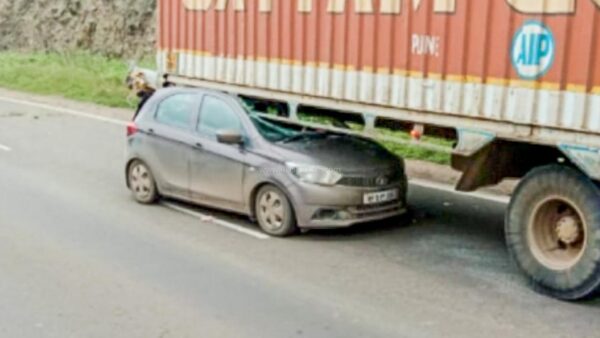
A minimum of 6 airbags for all private vehicles to improve vehicle crash safety standards and quick roll-out of Flex-Fuel vehicles is what has been proposed
In a meeting held with Society of Indian Automobile Manufacturers (SIAM), Union Road Transport and Highways Minister Nitin Gadkari discussed the urgent need to improve vehicle safety standards. This, he stated would be better addressed, if all automakers increase the number of airbags across every variants of each model produced. The issue of introduction of flex-fuel vehicles in the coming year was also discussed at the same meeting.
6 Air-Bags Across all Variants
As on date, 6 airbags are only offered on most top end vehicles that are priced above Rs 10 lakhs. This feature is restricted to just 2 airbags in models in a lower segment. Citing issues on increasing safety standards, Gadkari urged for all automakers to offer at least 6 airbags as standard across all variants of each model produced regardless of body style or segment.
The minimum 2 airbag rule was set to come into effect from 31st August 2021, but has now been differed to 31st December 2021. Following this new regulation, all cars sold in India, even models in a lower segment, will need to have at least 2 airbags as some of these vehicles had no airbags on offer at all.
These airbags are only restricted to driver and co-passenger seats while passengers to the rear are left vulnerable. It is with particular emphasis on passenger safety that Gadkari has urged for a minimum roll out of 6 airbags.

Implementation of 6 airbag rule, if it becomes mandatory, could be difficult to incorporate. It would involve added costs as models would have to be re-engineered to include this feature. As on date, a front airbag in an entry level model costs between Rs 5,000-10,000 while cost of side and curtain airbags increase two-fold. Cars would have to be re-engineered with modified platforms to accommodate the added airbags. It would also involve changes in body shell, interiors and fittings for efficient deployment of airbags.
Flex Fuel Vehicles
Nitin Gadkari has also suggested roll out of Flex Fuel Vehicles (FFV) in a year. These vehicles would be designed to run both on petrol and petrol-ethanol bends or even upto 100 percent ethanol. Such vehicles are only offered in markets of North America, Canada and Brazil as on date.
In India, use of FFVs will allow vehicles to use varying blends of ethanol and petrol available in different parts of the country. Currently, regulations allow mix upto 10 percent ethanol in petrol. Due to short supplies 10 percent blended petrol is limited only to 15 states while use of bio-fuel in other states ranges from 0 to 5 percent. This point was put across by Gadkari with a view to reduce use of polluting fossil fuels which would in turn bring down harmful emissions.
SIAM, on the other hand, appealed to the Union Road Transport and Highways Minister for deferment of fuel efficiency norms. Corporate Average Fuel Efficiency Phase -2 (CAFE-2) are set to come into effect from later this year and Bharat Stage VI Stage II norms to come into force from April 2023.

